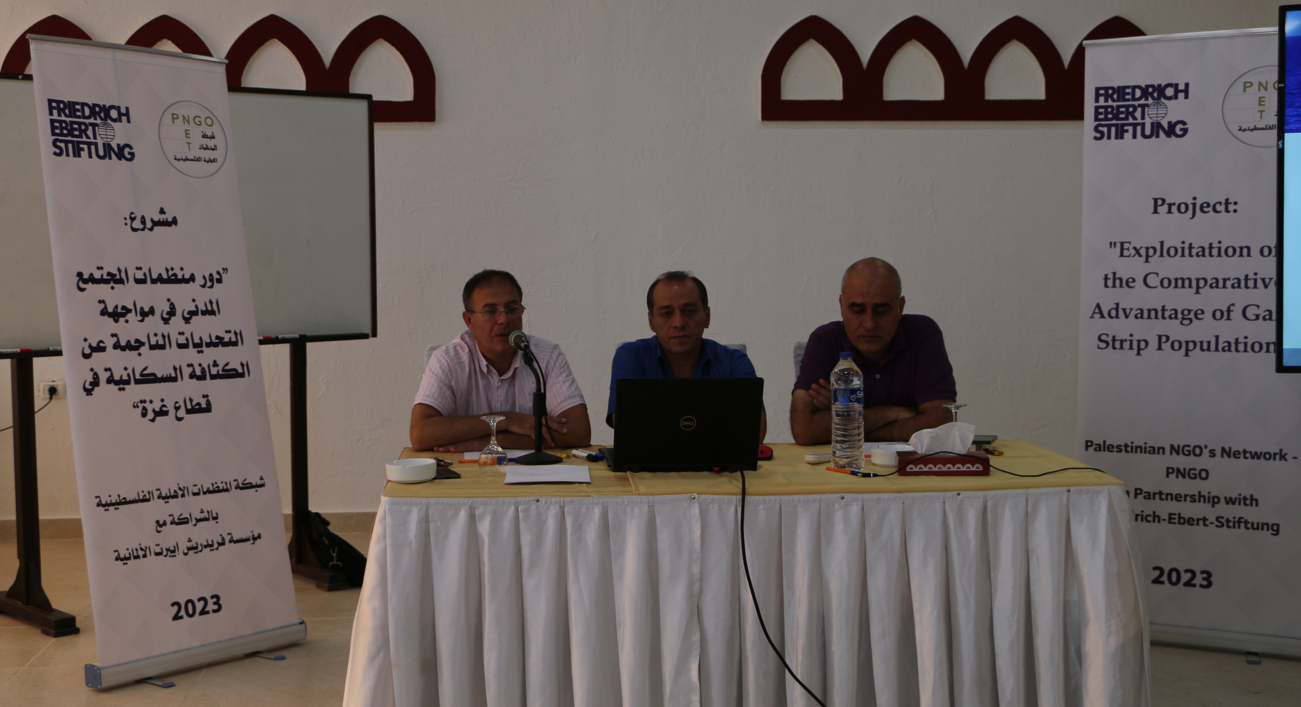Representatives of NGOs, academics, and researchers called for the need to develop a national integrated plan to confront the serious repercussions of the youth and talents emigration from the Gaza Strip. They urged the launch of a national campaign to raise awareness about the dangers of illegal emigration and strengthening the connection of youth to their society and its problems, considering that their problems stem from the problems of society.
They also called for the necessity to establish a national fund for youth, in which all parties, both the governmental and the private sectors provide technical and financial support to entrepreneurial projects for youth, especially agricultural projects, and micro and medium enterprises due to their impact on the growth of the economy and employment of the workforce.
They considered political stability to be the most important factor in influencing the decision to return immigrant scientific competencies to the Gaza Strip, followed by improving the economic situation, improving administrative systems in institutions, and developing scientific research.
This came during a workshop organized by PNGOs Network to present a paper prepared by Dr. Imad Abu Rahma entitled "Youth and Competencies Emigration from the Gaza Strip: Challenges and Solutions", within the project "Exploitation of the comparative advantage of Gaza Strip population", in partnership with Friedrich Ebert Stiftung.
In his speech, the Director of PNGOs Network, Amjad Al Shawa, said that "the long years of Israeli occupation and the catastrophic political, economic and social effects have led to a steady increase in the rate of young people with scientific and professional qualifications who wish to emigrate, especially from the Gaza Strip, whose conditions have seriously worsened during the years of internal division, siege, and Israeli aggression." He pointed out the importance of studying the issue of youth and talent emigration from the Gaza Strip from all aspects, foremost of which are its causes and effects, to submit proposals that contribute to the efforts of finding solutions or at least prevent its exacerbation.
Dr. Usama Antar, Programs Manager at the Friedrich-Ebert-Stiftung, said: "The growing rates of youth and talent emigration from the Gaza Strip, in the absence of official government interest in studying the issue, its risks, and its political, security, economic and social repercussions, led to the absence of effective government policies and programs to solve the problem and mitigate it."
Antar stressed that the emigration of young people and competencies from the Gaza Strip is a serious and complex issue as many political, security, economic, social, demographic, and psychological factors combine to exacerbate its intensity.
For his part, Dr. Imad Abu Rahma gave a presentation on the most important indicators of the high rates of youth and talent emigration from the Gaza Strip and its political, economic, and social risks. He highlighted the causes of the issue and focused on the ones related to governmental policies.
Abu Rahma confirmed that immigrants and those wishing to emigrate from the Gaza Strip are young people, most of whom are single, and unemployed. More than a third of them, according to some studies, hold higher university degrees a matter that will have serious repercussions on the development process in the Gaza Strip.
He explained that the inability of governmental policies and programs to absorb young people and integrate them into the development process, the blockage of political and community participation, the decline of economic opportunities available, and the suppression of any youth movements aimed at change, have increased the levels of the youth social and political marginalization, and pushed a large percentage of them to think about emigrating, and risking their lives through illegal immigration means in "death boats", as hundreds of them were swallowed by the sea, with very serious social effects on emigrants and their families.
Abu Rahma stressed that the absence of governmental reports disclosing the number of emigrants from Gaza, and the resort of governmental agencies to alleviate the problem, is a dangerous indicator and does not contribute to solving the problem, but rather leads to exacerbating the issue and its repercussions on society, especially in the absence of effective policies and programs to address it.
He pointed out that the main reasons for emigration are to improve living conditions and obtain better work opportunities, as well as have a good quality of education, in addition to seeking stability and security.
The participants in the workshop presented many observations and recommendations for the official authorities to play their role in finding solutions to the issue of youth emigration, its effects, methods to address it, and raising awareness of its risks.
They stressed the need to increase programs dedicated to youth empowerment, including training, skills development, and job opportunities, and to include the issue of youth among the priorities of the work of civil society organizations.
They also called for providing and developing an appropriate infrastructure for investment and entrepreneurial work, providing tax facilities and incentives for entrepreneurial projects, and providing incentives to the private sector to encourage it to support and adopt these projects.



